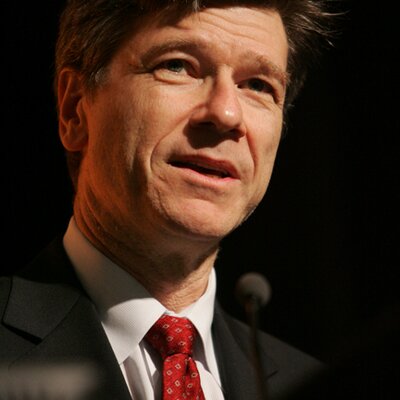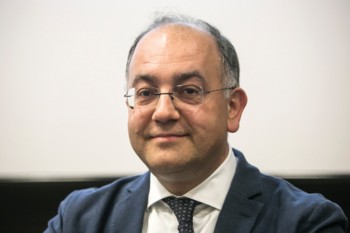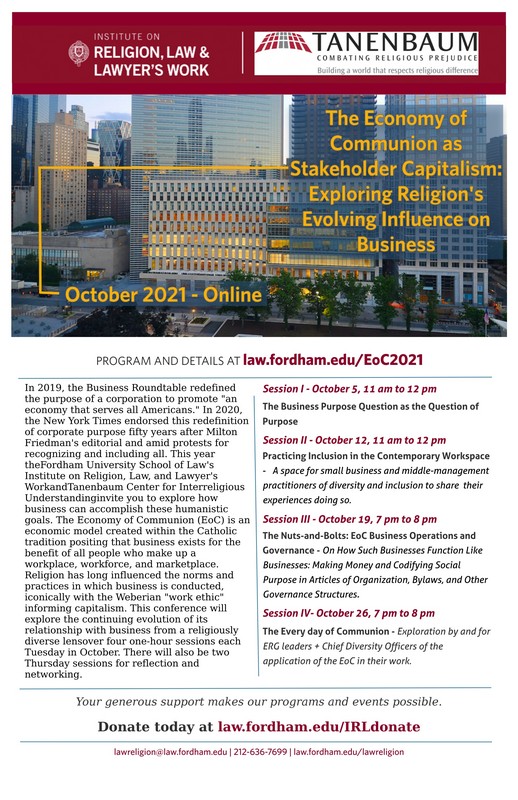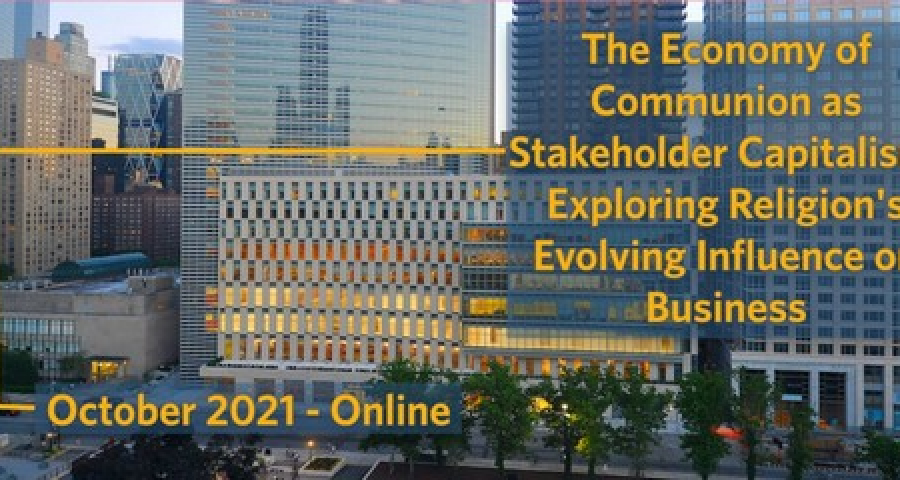Fordham University is hosting an online conference – 4 sessions over the month of October – that will explore what it means to build an economy that serves all, and will do it by looking at the example of the Economy of Communion (EoC) initiative.
You can review the details of the program and register for each session here.
 In 2019, the Fordham University Business Roundtable redefined the purpose of a corporation to promote "an economy that serves all Americans." In 2020, the New York Times endorsed this redefinition of corporate purpose fifty years after Milton Friedman's editorial and amid protests for recognizing and including all. This year the Fordham University School of Law's Institute on Religion, Law, and Lawyer's Work and Tanenbaum Center for Interreligious Understanding invite you to explore how business can accomplish these humanistic goals.
In 2019, the Fordham University Business Roundtable redefined the purpose of a corporation to promote "an economy that serves all Americans." In 2020, the New York Times endorsed this redefinition of corporate purpose fifty years after Milton Friedman's editorial and amid protests for recognizing and including all. This year the Fordham University School of Law's Institute on Religion, Law, and Lawyer's Work and Tanenbaum Center for Interreligious Understanding invite you to explore how business can accomplish these humanistic goals.
The Economy of Communion (EoC) is an economic model created within the Catholic tradition positing that business exists for the benefit of all people who make up a workplace, workforce, and marketplace. Religion has long influenced the norms and practices in which business is conducted, iconically with the Weberian "work ethic" informing capitalism. This conference will explore the continuing evolution of its relationship with business from a religiously diverse lens over four one-hour sessions each Tuesday in October. There will also be two Thursday sessions for reflection and networking.
The first session will be held on October 5 on the topic of “The Business Purpose Question as the Question of Purpose”
Speakers:
Jeffrey D. Sachs is a University Professor and Director of the Center for Sustainable Development at Columbia University. He is President of the UN Sustainable Development Solutions Network and Chair of the Lancet COVID-19 Commission.
Luigino Bruni is Professor of Economics at the Lumsa University, Rome. He is a Consultant to the Dicastery for Laity, Family and Life, President of SEC – School of Civil Economy and columnist for the Newspaper Avvenire. Editor-in-Chief of IREC (International Review of Economics), Director of the PhD in Civil Economy Sciences at Lumsa in Rome.









